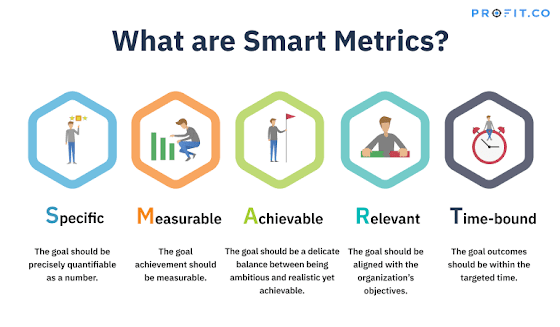Transforming Success: The Art of Performance Management
(Valamis, 2020)
Introduction
Performance management is a corporate management method that helps managers keep track of the effective and efficient work done by each team member so as to identify and cultivate productivity. It creates an atmosphere of transparency between managers and employees which is clear and motivational. It is a continuous communication between Manager and employee to achieve the company’s goals and objectives (Tardi, 2022)
A good Performance Management system can give employees a clear understanding of the company’s expectations, Definitions, and goals in a specific job role. It could help employee engagement, boost productivity, and improve performance. It helps structure a good performance and reward system to give incentives to goal accomplishments. It shows an employee the path to a progressive career within the organization that would help retain experienced staff.
(Valamis, 2021)
Performance Management Planning
Managers in an organization can set clear goals and objectives for employees defining competencies that are needed to achieve these goals. A current employee performance evaluation should be conducted against the competencies needed to achieve company goals. A smart Metric system can be used to have clear guidelines for the planning process. “
"I have been
struck again and again by how important measurement is to improve the human
condition” Bill Gates.
Smart Metrics should be used to make sure that the planning
process is accurate and achievable.
(Nantham, 2022)
Performance Management Monitoring
Continuously monitoring the progress of
employees against the action plan should be done until the goal is met. If the company goal changes employees should be reevaluated to see if they
could meet the new goals and objectives. Dialog between the employee and manager
could help remove any obstacles that would hinder progress and these obstacles should
be addressed to make sure the employee is able to meet expectations. Employees'
KPIs will provide a benchmark to monitor progress. A software system that could
monitor the staff’s progress could be a helpful tool.
Performance Management Reviewing
Giving a specific timeline, a work performance
review (appraisal) should be conducted to make sure that the employee has been
working to achieve the targets set for him. Direct communication with the
employee on conducting an employee performance appraisal would give both the
employee and the manager an understanding and clarity of how much of the target
was achieved during the set period. An employee can communicate their viewpoint
on how they performed during the period and what skill improvement and training
might be needed for further improvement. If there were problems discussed possible
solutions should be proposed.
Rewarding
As the last step of the process
identified employees should be rewarded for the contribution given to achieving
company goals which would motivate and enhance the productivity of the employee.
Failing to reward an employee could leave an employee with a lack of motivation,
lack of morale and might even lead to the employee leaving the company to suit
better prospects outside.
An increase in Salary, Bonus, increased leave, promotions, certificates of achievement, and companywide acknowledgment are some of the ways employees can be rewarded for the work they have done to reach the company goal.
Conclusion
Employee performance
management is a process of setting expectations, monitoring progress, providing
feedback to the employee, and rewarding the employee for his efforts. Regular
communication with employees by managers can help improve the effectiveness of
the process. The goal of the process is to help employees understand what is
needed in order to achieve the company goals and identify areas for
improvement. By investing in employee performance management, organizations can
improve employee engagement, retention, and overall business performance.
REFERENCE
- AIHR - Academy to Innovate HR (2019). What is the Performance Management Cycle? | AIHR Learning Bite. YouTube. Available at: https://www.youtube.com/watch?v=a9r0JeoXuek [Accessed 09 Apr. 2023].
- nantham, S. (2022). What are Smart Metrics and why are they Important? [online] Best OKR Software by Profit.co. Available at: https://www.profit.co/blog/kpis-library/what-are-smart-metrics-why-are-they-important/[Accessed 09 Apr. 2023].
- Tardi, C. (2022). Performance Management—We Explain This Corporate Tool. [online] Investopedia. Available at: https://www.investopedia.com/terms/p/performance-management.asp [Accessed 06 Apr. 2023].
- Valamis (2020). Performance Management. [online] Valamis. Available at: https://www.valamis.com/hub/performance-management [Accessed 08 Apr. 2023].
- Valamis (2021). Performance Management Cycle. [online] Valamis. Available at: https://www.valamis.com/hub/performance-management-cycle [Accessed 08 Apr. 2023].
- www.quitgenius.com. (n.d.). Performance Planning: HR Terms Explained | Quit Genius. [online] Available at: https://www.quitgenius.com/hr-glossary/performance-planning#:~:text=What%20is%20Performance%20Planning%3F[Accessed 10 Apr. 2023].
- www.bamboohr.com. (n.d.). What is a Performance Review? | BambooHR. [online] Available at: https://www.bamboohr.com/resources/hr-glossary/performance-review#:~:text=A%20performance%20review%20is%20a [Accessed 10 Apr. 2023].





Hi George ,
ReplyDeleteit is really essential article. nicely elaborate.
Thanks Gamini
DeleteEffective performance management requires a balance of art and science. Managers must be skilled at data analysis, goal setting, and feedback delivery, while also being empathetic and understanding of individual employees' needs and motivations. Well done.
ReplyDeleteThanks Tharanga
DeleteI completely agree with your analysis of the importance of performance management in organizations. It is a continuous process that helps in maintaining transparency, setting clear expectations and goals, and rewarding employees for their efforts. The performance management system not only helps in identifying areas of improvement but also in motivating employees to work towards achieving the company's goals and objectives.
ReplyDeleteThanks for your comments
Deleteactually sometimes your discuss good point this article. Eg* "company employee the path to a progressive career within the organization that would help retain experienced staff" I'm agree with it
ReplyDeleteGreat article! The importance of performance management in improving employee engagement and productivity has been well-explained in a concise manner. The article outlines the key steps involved in performance management planning, monitoring, reviewing, and rewarding, which helps organizations retain experienced staff and achieve company goals.
ReplyDeleteThanks for your comments Kalani
DeleteThe article has been created under a detailed analysis after studying the facts well about the subject. Well done...!!
ReplyDeleteThanks Chrishan
Delete